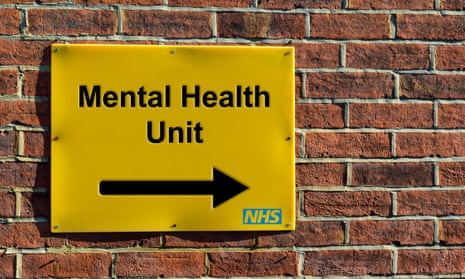We talk a lot about “mental health” these days, and references to mental illness are becoming rarer. The focus is on being well, and on recovery, which is very encouraging. But it’s not so good if you don’t actually manage to recover. Cancer services, accident and emergency departments and fracture clinics are fairly blunt about what they are addressing – but if you become mentally ill, you will usually be directed to services designed to help you with your mental health.
Does this difference in nomenclature reduce the stigma around mental illness, or does it actually make it worse? There is an implication that saying mental illness out loud would be too painful, and that we cannot admit to the possibility that people might not get better. To me, it feels like denying the severity of a problem, indeed denying the existence of an illness, and I’m not sure that’s right.
I would like to be very clear that I’m not rubbishing the concept of mental health here. I think it’s really important to consider both our own and that of other people. Lifestyle choices can be changed, often before they lead to illness, and also to stop any further progression. It’s not always possible, of course – for example, it is not usually a lifestyle choice to slip from heavy to dependent drinking – but we can try to eat better, sleep better, drink less and exercise, at least some of the time. It’s a balance though, and, from the comfort of my sofa, I try not to let myself feel too guilty about not exercising. After all, that wouldn’t be great for my mental health.
There have been times, though, when I’ve been very depressed, when my guilt about uncommitted deeds is not so easily lifted. At these times, I do think I’m mentally ill, rather than in a state where I need to enhance my mental health. Having a bath or meditating isn’t going to be sufficient.
I suppose the problem is trying to distinguish between the combination of stress and eroded mental health, which can be unpleasant and exhausting, and mental illness, which can be something else altogether. It’s often not easy until illness becomes very obvious. I see many patients in the hospital setting who are clearly ill, but maybe, only months before, they were well but struggling, trying to maintain their mental health before it slipped away.
In other words, despite my obvious desire not to sugar-coat mental illness with a false veneer of health, I think that both states exist, and co-exist, and actually we’re probably not helping people enough with their mental health. As a doctor, I can talk with someone and give them pills, but I can’t easily get them any help with losing weight or trying to exercise. I can tell them it would be good for them, but I don’t necessarily have any practical ways to help. Even so, I would like us all to be more honest about mental illness.
Why do I – still – feel slightly embarrassed to say I have bipolar disorder? Because mental illness remains rather unacceptable, with some diagnoses more so than others. “Mental health” is not only less unpleasant, it actually feels quite wholesome, implying a healthy mind and healthy living. “I must look after my mental health” sounds far better than “I fear becoming mentally ill”.
People who are experiencing mental illness can, understandably, become upset and angry when they meet with platitudes around mental health. Advising a hot bath can be particularly insulting, and it isn’t hard to see why. It’s not that a hot bath would be a bad thing, it’s more that the severity of their distress and suffering is being completely missed. Advise hot baths if you like, but listen to what people say and acknowledge it. If you are a health professional, think what you can and can’t offer, and share this. Perfectly good lifestyle suggestions may be ignored because they have been perceived as dismissive and this is hugely unhelpful.
Conversely, it can sometimes be better not to medicalise life’s difficulties. There may be times when people get stuck in a situation where, for example, they have come to believe they have a definite chemical imbalance in the brain that will only respond to the right pill. The causes of mental illness remain complex, however, and a rigid conception of the problem can disempower people and blind them to the steps they might be able to take to help themselves.
Where does this leave us? I would say embrace mental health by all means, but don’t forget that people get ill as well. If your heart and kidneys can go wrong, then your brain can too. Is health the opposite of illness? I don’t think so. You can still do things about your wellbeing while being treated for your illness and it may help, but it may not cure it. If it makes you feel better, it’s worth it. Just don’t let anyone dismiss or minimise your condition, if “illness” is indeed what best describes it.
Rebecca Lawrence is a consultant psychiatrist
In the UK, the charity Mind is available on 0300 123 3393 and Childline on 0800 1111. In the US, Mental Health America is available on 800-273-8255. In Australia, support is available at Beyond Blue on 1300 22 4636, Lifeline on 13 11 14, and at MensLine on 1300 789 978
